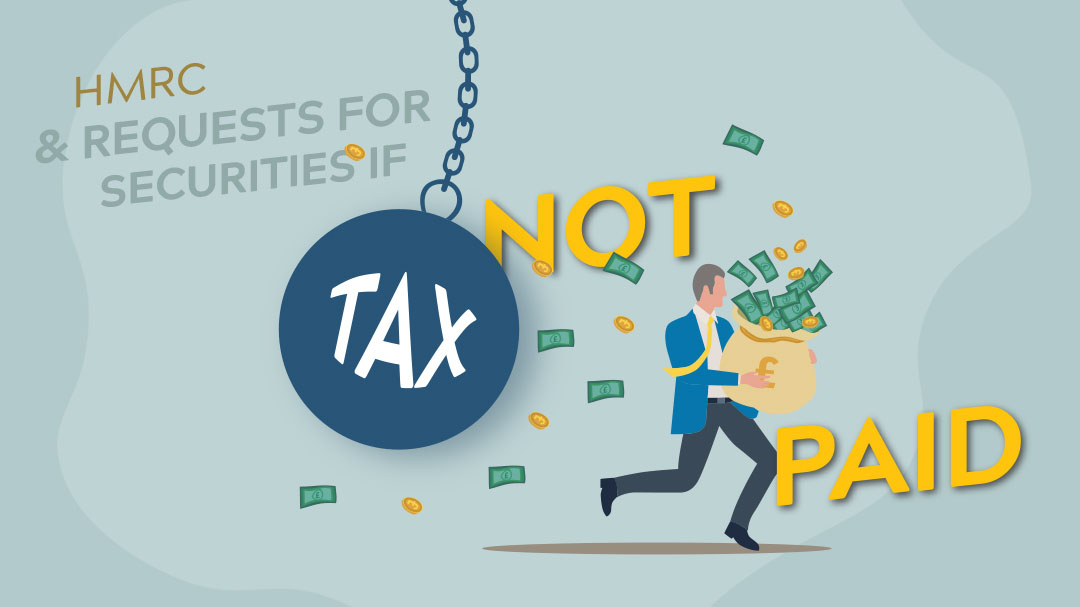HM Revenue and Customs (HMRC) can ask for a financial security if it believes a business may be at risk of not paying its taxes, whether that be Corporation Tax, VAT, PAYE, or National Insurance Contributions.
The security demanded can be in the form of a payment directly into a nominated HMRC bank account or a performance bond from an approved financial institution. HMRC will not accept security in the form of an asset, such as a high value car or cryptocurrency.
Most importantly, it is a criminal offence not to give a security to HMRC when it asks for it.
Why does HMRC ask for a security?
There are two primary factors HMRC considers before seeking a security:
- Whether those in control of the company are connected to a previous business failure, which resulted in a loss of tax.
- Whether there is reason to believe the company will fail to comply with its tax obligations.
How does HMRC ask for a security?
HMRC will issue a Notice of Requirement (NoR) to a business stating that a security is required.
Sometimes HMRC will issue a warning letter before a NoR is issued. However, if HMRC believes a warning letter might increase the risk of tax not being paid, a NoR maybe sent or delivered in person, without any warning at all.
What does a NoR contain?
A NoR explains:
- HMRC’s legislative power to require a security.
- The amount of the security.
- The date on which the security is to be given, which is usually 30 days after the day the NoR has been received.
- How long HMRC can keep the security for.
- The names of all the people connected with the business who have been given a NoR requiring them to give security jointly and severally.
- How the security has been calculated.
- The means by which the security should be given.
- The right of appeal.
What are the appeal rules?
An appeal must be made in writing to HMRC within 30 days of the date of the NoR.
HMRC will then try to settle the matter by agreement. If that is unachievable, then HMRC will offer a review by a different HMRC officer. If agreement can still not be reached, there remains the opportunity to take the appeal to a Tax Tribunal.
If a warning letter has been received before the issue of a NoR, then representations should be made to HMRC immediately, before a NoR is issued.
What happens if the security is not paid?
It is a criminal offence not to pay a security shown on a Notice of Requirement and HMRC may seek a prosecution.
A fine of up to £5,000 can be charged, in addition to any fines and compensation awarded by the court.
Do HMRC issue many NoRs?
Yes.
Before the pandemic arrived, just in relation to VAT related NoRs alone, HMRC was issuing around 1,500 a year, generating over £2m in security each year.
We have started seeing a new round of NoRs being issued by HMRC’s Campaigns and Projects team, with clients seeking urgent help.
If you require any assistance, then please get in contact by calling us on 0800 001 6686 or by email at info@independent-tax.co.uk for a no obligation consultation and for more information.
This is the type of work we at Independent Tax do day in day out. Strong by your side and strong in your defence.
